One day in late December 2021, Ms. Minh Anh and her husband (District 12, Ho Chi Minh City) held hands tightly, watching a scene they never thought they would see in their lives. The embryo created from her rare eggs was placed in a separate incubator that simulated the mother's uterus. With a 24/7 surveillance camera, the entire process of development and cell division was analyzed by artificial intelligence (AI) software to assess the quality of the embryo, compare it with hundreds of integrated embryo data from around the world and select the best embryo to put into the mother's uterus.
In mid-January 2022, the doctor selected the highest quality embryo and transferred it into Minh Anh's uterus. More than 9 months later, that embryo became the couple's first son. "Seeing how the child took shape was a magical experience," Anh said emotionally.
Although they got married late, the couple (both born in 1985) continued to delay having children after 3 years of marriage. At the age of 34, Ms. Anh was desperate when the doctor informed her that her ovaries were exhausted, making it almost impossible to have children from her own eggs. "The doctor said I was like a 'dry well'. My husband and I could only hug each other and cry," Ms. Anh said.
Coming to Tam Anh General Hospital in Ho Chi Minh City for examination, she was consulted by MSc. Dr. Giang Huynh Nhu, Director of the Center for Assisted Reproduction (IVFTA-HCM), who developed a suitable egg stimulation regimen, collected eggs and cultured embryos using an incubator integrated with artificial intelligence software to increase the chance of success.
The first embryo transfer was successful, and the first son was born in September 2022. Ms. Anh also froze an embryo, planning to have another child in a few years.
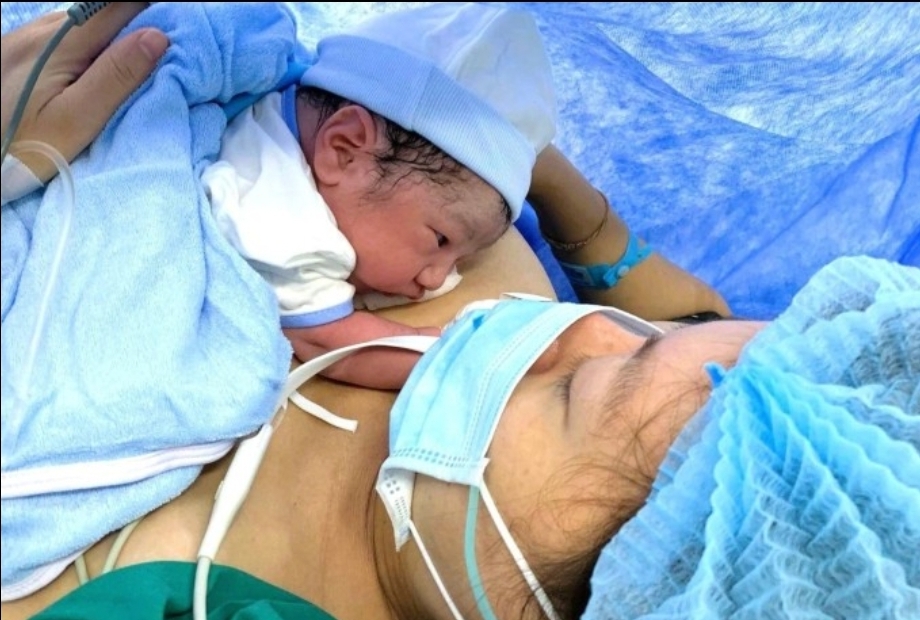
Ms. Anh holds her newborn baby in her arms. Photo: Tue Diem
Similar to Ms. Anh, Mr. Minh Hieu and his wife (District 7, Ho Chi Minh City) are both nearly 40 years old, having been treated from the South to the North for 5 years but have not had children. The husband has no sperm due to complications from mumps in his youth. The wife's ovarian reserve index has also hit rock bottom. When coming to IVFTA-HCM, the chance of getting pregnant and giving birth was only 10%.
Doctors performed microsurgery to find sperm for the husband, while stimulating the wife's ovaries for in vitro fertilization, creating embryos and culturing them in the lab using AI applications for evaluation and selection. The couple received good news on the first embryo transfer.
According to embryologists, AI technology is the key to success in IVF. Because if the embryo is not created, nurtured and selected from the few sperm, the patient must wait another 1-2 years before having a second sperm search surgery. At that time, the chance of having a child is almost zero.
Dr. Giang Huynh Nhu said that artificial intelligence is being widely applied in the medical field, including reproductive support. Scientists have invented an algorithm to help predict the results of IVF through software that compares, analyzes and evaluates the formation and development of hundreds of embryos. According to a 2019 report by Pegah Khosravi, assistant professor at the New York City University of Technology (USA) and colleagues, applying AI to determine embryo quality has an accuracy of 97%.
Previously, before this application, embryologists had to take the embryos out of the incubator to observe directly under the microscope. Changes in temperature, humidity, and the surrounding air environment could shock the embryos. Therefore, the rate of embryo failure was high, embryo development was interrupted, and it was difficult to cultivate the embryos until day 5.
AI technology was first deployed at Tam Anh General Hospital in early 2020. Tam Anh IVF uses the Embryoscope embryo culture cabinet system. Unlike conventional culture cabinets, Embryoscope is likened to an "artificial uterus", with each cabinet compartment used for a separate culture case. In case any compartment is opened, the doors of the remaining compartments remain closed. This helps reduce sudden changes in temperature, humidity, and air environment in the incubation cabinet.
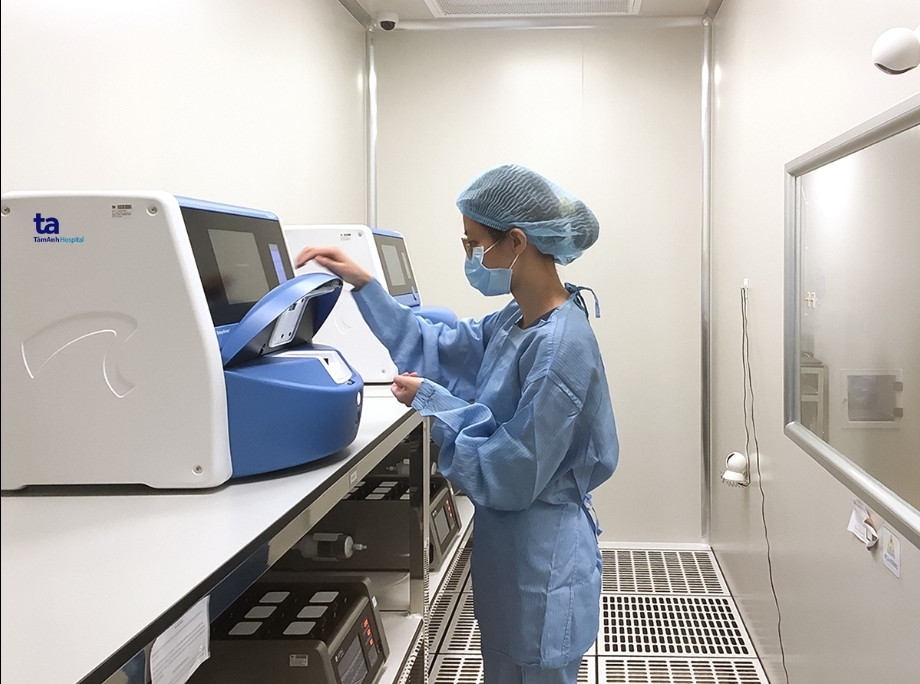
An embryologist is placing an embryonic plate in an embryo incubator with 24/7 camera surveillance. Photo: Tue Diem
This incubator integrates a camera system to monitor the image and development process of the embryo. The embryologist can observe and evaluate every small change without time pressure, because there is no need to take the embryo outside. The patient can also observe the embryo development process through the computer screen.
Every 5 minutes, the camera will take a picture of the embryo to provide data and information to the AI software. The software will analyze each embryo cultured inside the incubator, compare the development process of the embryos under the same culture conditions to select the best embryo to transfer into the woman's uterus, increase the success rate, and reduce the risk of twins with many dangerous complications.
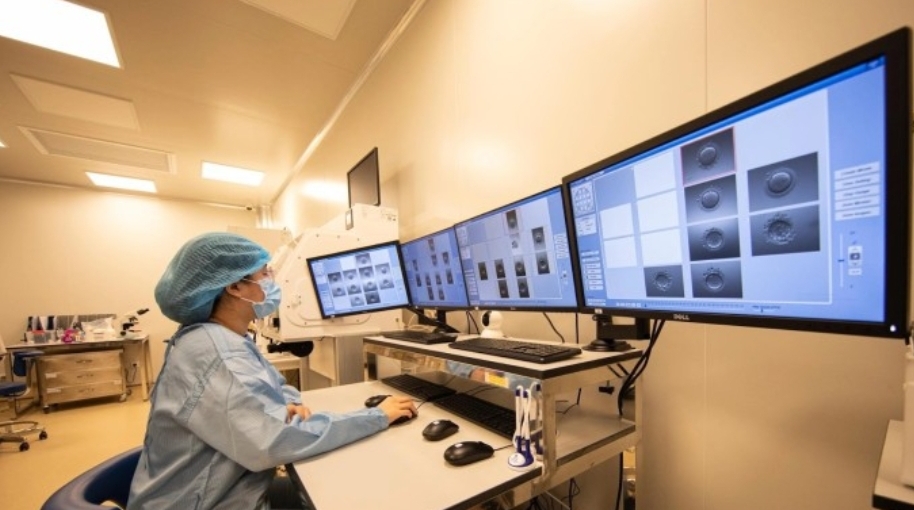
An embryologist monitors the Embryoscope embryo culture system through screens. Photo: Tam Anh General Hospital
According to Master Nguyen Ngoc Quynh, Head of Tam Anh IVF Lab, embryos are evaluated on a 10-point scale. The higher the score, the better the embryo's ability to implant. In cases where a patient has many embryos, with different scores, embryologists will choose the embryo with the highest score to transfer first, helping the wife get pregnant as soon as possible.
Women over 35 years old and men over 45 years old are the group that often have low ovarian index, abnormal sperm, azoospermia... leading to a high rate of abnormal embryos. "AI is a 'right-hand man' that helps specialists have a basis to evaluate embryo quality, choose good embryos to transfer into the uterus and predict the possibility of pregnancy," said Dr. Huynh Nhu.
Dr. Huynh Nhu shared that currently 95% of infertile patients at IVF Tam Anh choose to cultivate embryos using the Embryoscope cabinet system and artificial intelligence software. Although 80% are difficult cases, long-term infertility, old age, poor ovarian reserve, multiple embryo transfer failures..., modern technology applications have contributed to improving the success rate for patients even with only one embryo transfer.
* The patient's name in the article has been changed.
Source



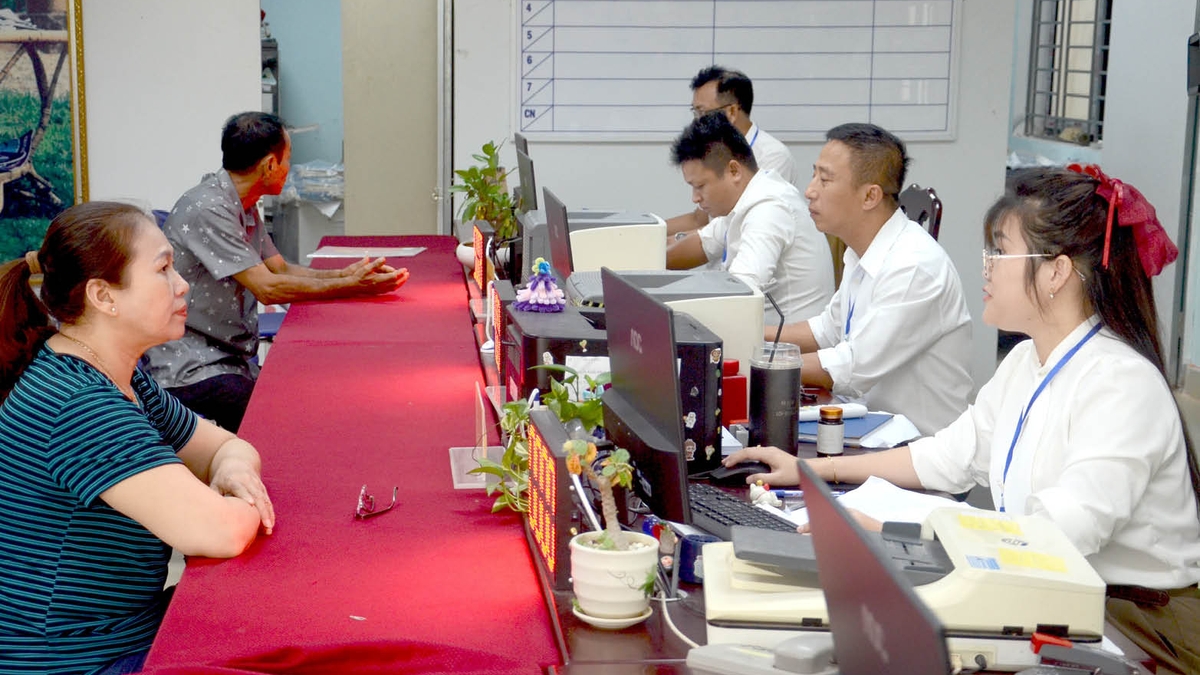











































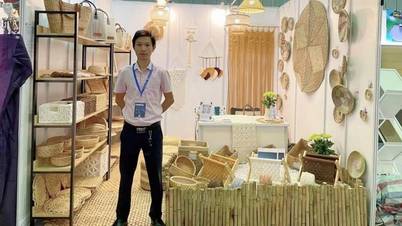
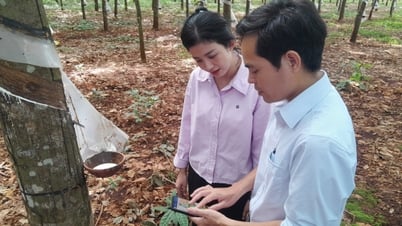


























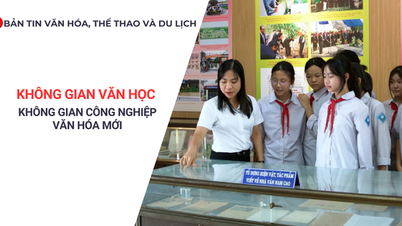
























Comment (0)